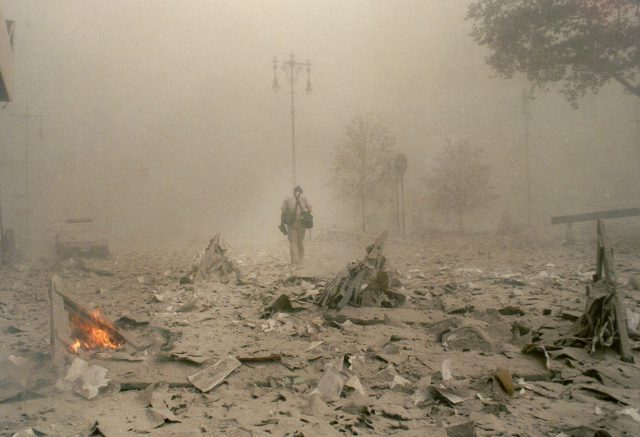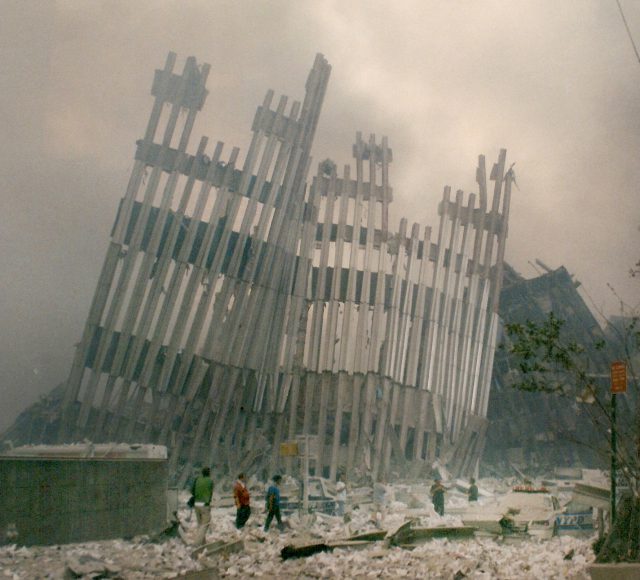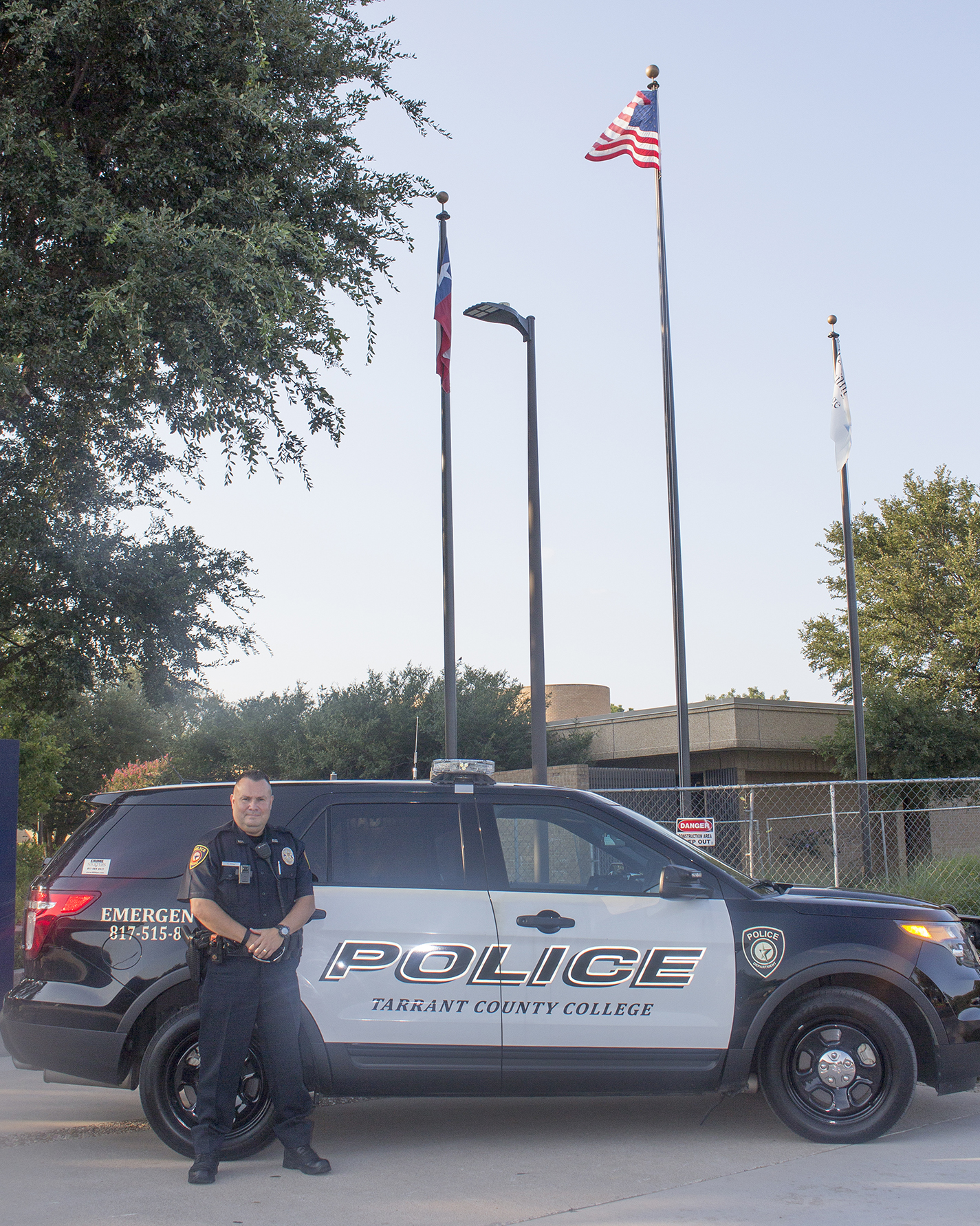By Kathryn Kelman/editor-in-chief
He’s getting ready to leave for duty when a stream of sirens fill his ears. He goes out to his car and turns his radio on when he hears a call about a fire in the World Trade Center. Unknown to the Brooklyn native at the time, the first plane has hit the towers.
As sirens continue to flash and roar in the background, he turns off the car and heads back inside to finish getting ready, not thinking too much of it because it was normal to call for backup from other boroughs in New York City for large fires. But once inside, he turns on his television to try to see more of what is going on.
Ceferino Cruz was an NYPD officer in Brooklyn. It was Sept. 11, 2001.
“When I put the TV on, I see the tower on fire,” he said.
As he’s watching the scene unfold, the anchors break the news that another plane has hit the towers.
“I said, ‘Wow, something’s happening. This is really, really bad,’” Cruz said.
On that particular day, Cruz, normally with the 70th precinct, was assigned to the 68th for election duty because New York had a primary election on that day, he said.
After learning of the attack, Cruz called the desk officer and was told to head to the precinct and wait for further instructions.
Ground zero was a 20-minute subway ride away.

Photo by Peter Matthews/The Collegian
“Basically, that day we were just staging, because the city of New York, the police department had never experienced an event of this magnitude,” he said. “So, they were kind of caught off guard with the mobilization process.”
By 11 a.m., the towers had fallen. It was utter chaos, Cruz said.
From the precinct, Cruz could see lower Manhattan.
“You could just see a plume of smoke just coming up,” he said. “I was listening to my police radio and the traffic, and there was a lot of confusion.”
Cruz recalls being shocked by the overwhelming sadness of the people and the reports of people being scalded by the jet fuel that was coming down.
“The pictures of that day are still very vivid in my mind,” he said. “People caked with the white dust, and they were rushing.”
Cruz remained in Brooklyn that day. He wasn’t assigned to Ground Zero until Sept. 13. By that time, there was still chaos, he said.
“It was like an atomic bomb hit the lower downtown area,” he said. “There were police vehicles that were burned up, firefighter vehicles that were completely melted, shards of glass everywhere, lightposts bent by the force, and then you saw a huge hole and the pile of debris.”
He was assigned to the crime scene detail because they were still in rescue mode, sifting through the debris to find people that were buried.
“Along with the federal and state agencies, we were also protecting the perimeter because it was an ongoing investigation,” he said. “So, we kept the civilians out because we were looking for anything that could give us an indication of what sort of bombing material was used.”
For the next eight months, Cruz spent the majority of his time on duty sifting through the debris, identifying body parts among other things.
“We were doing 12-hour tours, just classifying whatever evidence came through,” he said.

Photo by Peter Matthews/The Collegian
Having been a police officer for seven years, Cruz knew what the smell of death was, but the smell from the debris was unforgettable.
Cruz was also briefly assigned to the mayor’s office to give back property to the families of victims that had already been identified. On his first day there, he had to give property to a fallen officer’s wife, he said.
“It was a tearful moment that I had to give this widowed wife a wallet with his pictures and jewelry and rings that we found. I had to give it back to her,” he said. “It was just sad. I felt like there was no way I could comfort her, but I thought that by maybe giving her this, she could walk down the road of closure.”
Cruz went to the mayor’s office to give back property four more times, but it was incredibly difficult so he asked the sergeant in charge to remove him, he said.
One thing Cruz hopes people remember after the attacks on 9/11 is the bravery and courage of first responders, how they faced the difficulties of trying to help people in stressful situations and their selflessness, he said.
“Most police officers and firefighters and even EMT, they wouldn’t want the term hero,” he said. “It’s a profession that they love, and they want to be remembered as doing their best while they fell in the line of duty.”
Cruz retired from the NYPD after 20 years of service before moving to North Texas when his three sons were getting ready to head off to college.
Working on TCC’s NE Campus is very different from working the streets in New York, he said.
“It’s night and day,” he said.
But Cruz likes the slower pace and lighter workload now that he’s older, he said.
Sixteen years following 9/11 and no longer living in New York, Cruz still takes time with his family and other NYPD officers in the DFW area on the day to remember the attacks and the innocent lives that were lost.
To this day, Cruz still struggles with the emotional trauma that day left him with. He has not visited the 9/11 memorial yet, but he thinks he’ll return to Ground Zero soon to pay his respects.
“Some years are difficult, but I have a CD that has images ‘cause our motto is ‘Never forget,’” he said.

